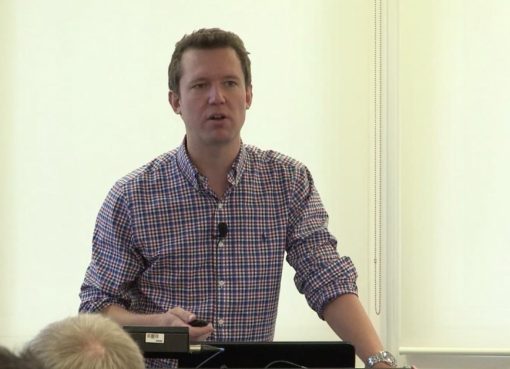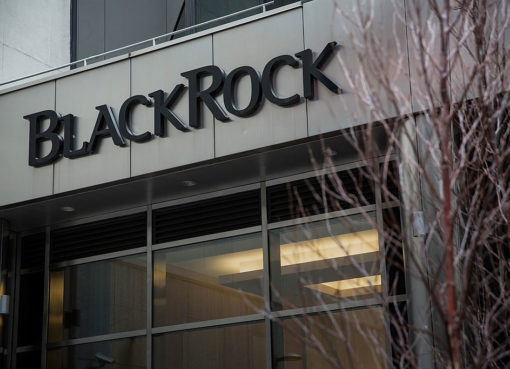U.S. investment bank J.P. Morgan is partnering with Singapore’s DBS Bank and state-owned investment company Temasek to form a technology company for developing a blockchain-based platform for payments.
The company, named Partior, aims to reduce frictions in cross-border payments, trade and foreign exchange settlement, according to a joint statement.
Partior — which means “distribute” and “share” in Latin — is envisioned to be a common and open platform built on the Ethereum-based ConsenSys Quorum blockchain for banks to provide more efficient digital clearing and settlement solutions across the banking industry globally. The platform is targeted for launch by the third quarter of this year.
The current model for cross-border payments is full of pain points due to the complexity of flowing through multiple intermediaries along the way, said Han Kwee Juan, group head of strategy and planning at DBS Bank, Southeast Asia’s biggest bank, in an interview with Forkast.News. Multiple validations that need to be done on payment details by intermediary banks often translate to costly and onerous post transaction difficulties, he added.
“By harnessing the benefits of blockchain and smart contracts technology, the Partior platform will address current points of friction,” said Piyush Gupta, DBS’ chief executive officer, in a news release.
The open platform will enable banks around the world to provide real-time cross-border multi-currency payments, trade finance, foreign exchange and DVP securities settlements, with programmability, immutability, and traceability built into its suite of services, Gupta added.
See related article: Singapore’s DBS bank becomes first in Asia to offer crypto exchange
The Partior platform will also develop wholesale payments rails based on digitized commercial bank money to enable instantaneous settlement of payments, thereby helping banks overcome challenges presented by the current sequential method of processing global payments, according to the statement.
What Partior means to DBS
According to a briefing on DBS’s first-quarter 2021 results held today, Partior will allow the bank to co-create a market infrastructure for the digital economy. This will ostensibly allow the bank to enhance its offering to banking customers such as corporations, by providing greater speed, certainty and transparency in blockchain-based payments & clearing services. The bank also intends to commercialize its proprietary technology to earn a new source of IP-based revenues.
‘Game-changer’ for payments in Asia
Southeast Asia is home to about 656 million people, 9% of the world’s population. But unlike the U.S. or eurozone, the region does not have a single currency and its payment landscape is fragmented, as different countries have disparate financial market infrastructures. The region’s digital payments industry is projected to grow to US$1.2 trillion by 2025, with remittance flows also expected to rise to US$35 million in 2025 from US$15 billion in 2020, according to the “e-Conomy SEA 2020” report by Google, Temasek and Bain & Company.
See related article: Digital payments — not cash — is now king in Asia’s payment ecosystem
Given the significance of remittance payments in the Asia Pacific region, it makes a lot of sense for banks to participate, Stephen Richardson, vice president at Fireblocks, a digital assets custody provider, told Forkast.News in an interview. Richardson says this could optimize cross-border payments and minimize the credit risk, counterparty risk and inefficiencies that banks experience today in moving payments.
Chia Hock Lai, co-chairman at Blockchain Association Singapore and co-founder of the Global Fintech Institute, a Singapore-based global association for FinTech professionals, told Forkast.News in an email that “The announcement proved the feasibility of blockchain for wholesale payments, especially those cross-border in nature with foreign exchange involved. By leveraging on the native strength of blockchain such as programmability and traceability, it makes cross-border payments and settlement faster, cheaper and more efficient.”
“This will catalyze more blockchain use cases especially in the supply chain, trade finance and securities settlement in Asia given that real-time visibility and settlement are game-changers in these use cases,” Chia said.
See related article: R3 Corda helping Thailand’s case for international trade dark horse
The future of payments and the industry as a whole
Partior could very well be a game changer for payments, and the financial industry itself.
Naveen Mallela, global head of Coin Systems at Onyx by J.P. Morgan told Forkast.News the industry is moving away from bank-centric products and bank-centric platforms to shared platforms and decentralized networks. “We are coming to sort of lead the future in setting up this shared platform, decentralized network and what sort of business models that that enables,” Mallela said. “It’s about interoperability.”
See related article: How JPMorgan’s Onyx is redefining payments in banking with blockchain
Partior’s launch is subject to obtaining the required regulatory consents and approvals. When complete, the platform aims to provide 24/7 infrastructure that will enable financial institutions and developers to co-create applications supporting use cases such as foreign exchange Payment Versus Payment (PVP), Delivery Versus Payment (DVP) and Peer-to-Peer escrows to complement and add value to global financial ecosystems, according to the statement.
The platform will initially focus on facilitating flows primarily between Singapore-based banks in U.S. dollars and Singapore dollars, with the intent to expand service offerings to other markets and currencies. Partior’s platform will also be designed to complement ongoing Central Bank Digital Currencies (CBDCs) initiatives and use cases.
The efforts by DBS, J.P. Morgan and Temasek are a commercialization of their past work as part of Project Ubin, a multi-year, multi-phase project initiated in 2016 by the Monetary Authority of Singapore (MAS). This was done in collaboration with the industry to explore the use of blockchain and distributed ledger technology for clearing and settlement of payments and securities.
See related article: New ASEAN Blockchain Consortium forms to champion blockchain
“It is an excellent move by Temasek, supported by MAS, to get the banks to work towards an alternative system to reduce pain points in payments,” said David Lee, a professor at the Singapore University of Social Sciences and chairman of the board of the Global FinTech Institute, in an email to Forkast.News.
“Let us hope that the new system will bring about corporate inclusion which is much needed for the financial sector. Financial inclusion is more than getting the underserved onboard the financial system,” Lee said. “It is also about not excluding any less-endowed companies that are as competent as the true spirit of decentralization and distributism, as demonstrated by the very successful Bakong Project.” Project Bakong is Cambodia’s blockchain-based payments and settlement system powered by the Hyperledger Iroha. Launched in October 2020, Project Bakong was designed to improve interconnectivity and interoperability across payment platform operators, attain efficiency in payment systems, promote financial inclusion and ease of cash payments.
“The launch of Partior is a global watershed moment for digital currencies, marking a move from pilots and experimentations towards commercialisation and live adoption,” said Sopnendu Mohanty, chief FinTech officer at the Monetary Authority of Singapore, in a news release.
“With its genesis from Project Ubin, a public-private partnership on blockchain and CBDC experimentation, Partior is a pioneering step towards providing foundational global infrastructure for transacting with digital currencies in a trusted environment, spurring a wide range of use-cases in the blockchain ecosystem,” Mohanty said.
Yohan Yun contributed to reporting.




